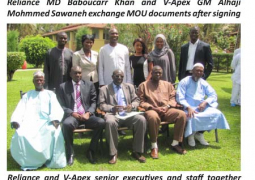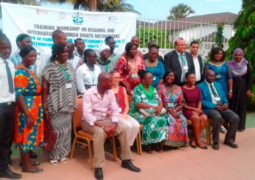In a bid to increase women’s representation in Local Government Councils, Agency for Village Support (AVISU), in collaboration with Concern Universal, at the weekend conveyed a one-day forum on women empowerment and gender mainstreaming.
Held at the governor’s bantaba in
Speaking at the forum, Musa Saho, programme manager for AVISU, said the event, which formed part of the European Commission’s funded projects, is being executed by AVISU.
The twelve-month project, he said, is being implemented in URR, CRR, NBR and LRR regions. The objective of the project is conceived, designed and implemented in order to address issues impeding development.
According to him, the Gambia National Agricultural Investment Plan 2011 to 2015 revealed that a feminization of poverty is underway exemplified by higher levels of poverty among female headed households.
“It suggests that discriminatory socio-cultural practices prevent gender equity, notably in areas of service delivery access,” he added.
To him, improving access to decision-making for women would go a long way in addressing the areas of service delivery.
For his part, Sulayman Darboe, a board member of AVISU, said promoting gender equity and gender empowerment would increase women’s representation in the Local Government Authorities.
Concern Universal and AVISU have been together implementing projects successfully since 2008 in CRR, he said.
Mr Darboe added that there is no doubt that with active participation and collaboration of its partners, the project would be successfully implemented as planned.
Lamin Badjie, community development officer for CRR South, on behalf of the governor, underscored the significance of the forum.
He added that gender is a cross-cutting issue and as such needs multi-sectoral approach to address it. “The realisation of gender equality and actors in development process is to address these issues in their respective areas of mandate and capacities,” said Badjie.
There is sufficient evidence to show systematic socio-cultural practice of discrimination against women, he noted, saying that despite numerous efforts to mainstream gender into the national development process, the overall level of gender responsiveness still remains low.
Yayah Sanyang of Concern Universal said women formed 52.2% of the population and out of 63 wards only 4 women are ward councillors.
According to him, the project targets 63 wards, within 4 Local Government Administrative regions.
He urged the participants to disseminate the information to the grassroots level for wider audience to enhance women’s representation and participation in Local Government Councils across the target regions.





